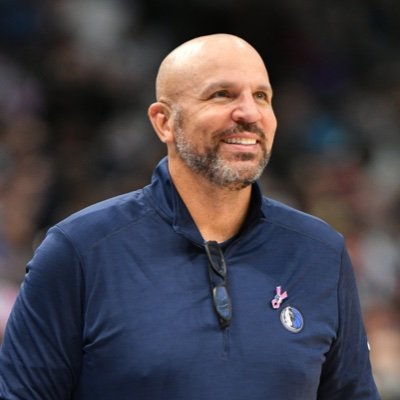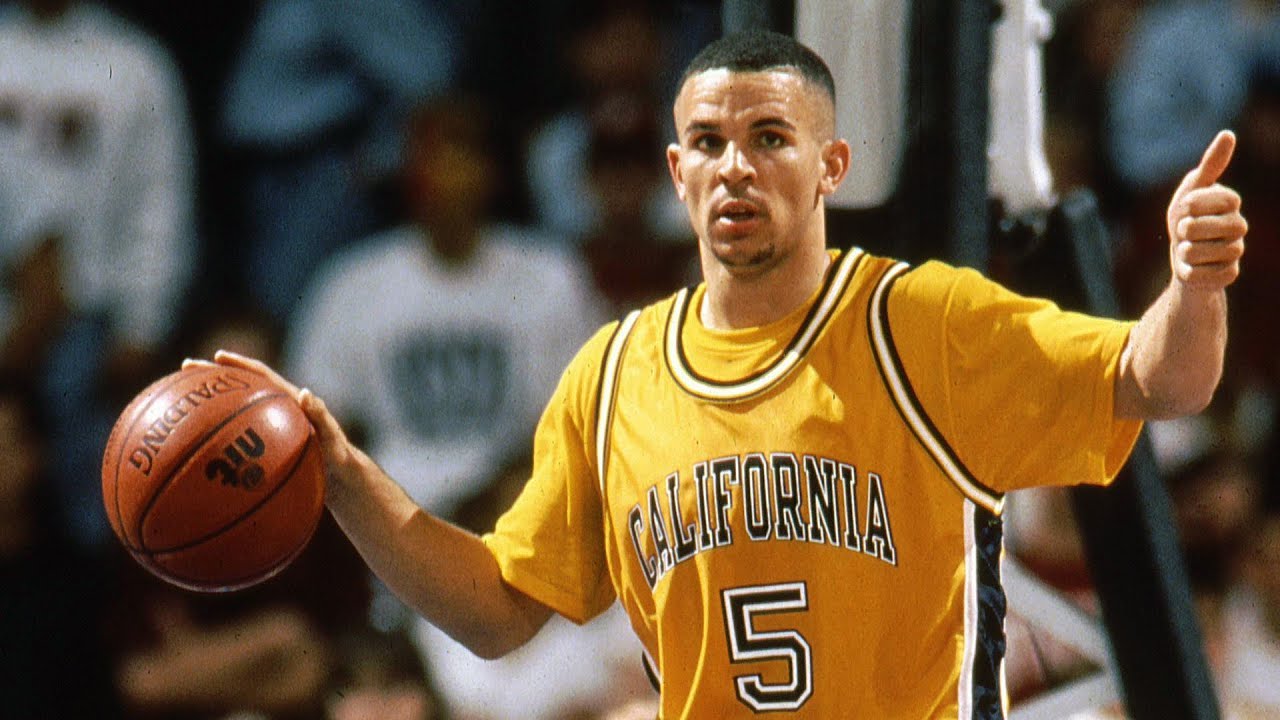Jason Kidd (Part 2)
Jason Kidd (Part 2)

Jason Kidd was drafted as the second overall pick by the Dallas Mavericks, following Glenn Robinson of Purdue and preceding Grant Hill of Duke. In his debut season, Kidd showcased his versatility, averaging 11.7 points, 5.4 rebounds, and 7.7 assists per game. Notably, he led the NBA in triple-doubles, a feat that earned him a share of the 1995 NBA Rookie of the Year honors alongside Grant Hill of the Detroit Pistons.
The Mavericks' decision to select Kidd proved transformative for the franchise. Prior to his arrival, the team had struggled, finishing the preceding season with the worst record in the NBA at 13–69. However, Kidd's impact was immediate and profound. Under his leadership, the Mavericks experienced a remarkable turnaround, finishing the season with a record of 36–46. This 23-game improvement marked the largest improvement in the NBA that year, highlighting Kidd's instrumental role in revitalizing the Mavericks and setting the stage for future success.
In the subsequent season, Jason Kidd's stellar performance earned him a spot as a starter in the 1996 All-Star Game, a testament to his growing reputation as one of the league's premier point guards. During his initial two years with the Mavericks, Kidd became synonymous with his signature move, "the baseball pass," showcasing his exceptional court vision and playmaking abilities.
Kidd formed part of the dynamic "Three J's" trio in Dallas, alongside Jim Jackson and Jamal Mashburn. Despite promising beginnings, tensions arose within the group, exacerbated by Mashburn's injury and strained interpersonal relationships among the team's young leaders. These internal conflicts hindered the Mavericks' progress and led to a regression in their development rather than further advancement.
Additionally, Kidd's ongoing issues with the coaching staff further complicated matters, contributing to the decision to trade the young star just three seasons into his NBA career. This pivotal move marked a significant turning point for both Kidd and the Mavericks organization, shaping the trajectory of their respective futures in the NBA.
During the 1996–97 season, Jason Kidd was traded to the Phoenix Suns alongside Tony Dumas and Loren Meyer in exchange for Michael Finley, A.C. Green, and Sam Cassell. In his inaugural full season with the Suns in 1997–98, Kidd made an immediate impact, contributing to a significant improvement in the team's performance.
Under Kidd's leadership, the Suns' win total surged by 16 games compared to the previous season. Finishing with an impressive 56–26 record, the Suns garnered attention for their fast-paced style of play, with Kidd often orchestrating a small lineup featuring four guards—himself, Kevin Johnson, Rex Chapman, and Steve Nash—on the court simultaneously, complemented by Antonio McDyess playing at center.
Despite their regular-season success, the Suns' postseason journey was cut short as they were eliminated in the first round by the San Antonio Spurs, led by their formidable Hall of Fame Twin Towers duo, David Robinson and Tim Duncan. Despite this setback, Kidd's tenure with the Suns marked a period of resurgence for the franchise, showcasing his ability to elevate teams and compete at a high level on the NBA stage.
In the 1998–99 season, Jason Kidd showcased his prowess as a playmaker, leading the league in assists with an average of 10.8 per game, dethroning Rod Strickland of the Washington Wizards. Kidd's exceptional court vision and versatility were evident as he recorded seven triple-doubles, a feat made even more impressive considering the rest of the league managed only 11 triple-doubles combined. His contributions extended beyond facilitating, as he also excelled defensively, ranking fourth in the NBA in steals with an average of 2.28 per game. Additionally, Kidd displayed remarkable consistency across multiple statistical categories, averaging career highs in points (16.9 ppg), field goal percentage (.444), rebounds (6.8 rpg, leading NBA guards), and steals.
During this season, the Suns experienced success when Kidd recorded triple-doubles, winning all seven games in which he achieved this milestone./cdn.vox-cdn.com/uploads/chorus_asset/file/24347871/usa_today_19751818.jpg)
Heading into the 1999–00 season, the Suns bolstered their roster by acquiring Penny Hardaway from the Orlando Magic, forming a formidable backcourt duo alongside Kidd. The duo was dubbed the "BackCourt 2000," with high hopes for their impact on the team. Despite posting a respectable 53–29 record, injuries plagued both Kidd and Hardaway throughout the season. Kidd suffered a late-season ankle injury but made a triumphant return during the playoffs, helping the Suns defeat the defending champion San Antonio Spurs and advance to the second round for the first time in his career.
The following season, the 2000–01 campaign, was marred by personal challenges for Kidd, as he faced charges of domestic abuse involving his wife. Despite these difficulties, Kidd's leadership on the court remained evident as he propelled the Suns to another 50-win season. Encouraged by his teammates to take on a more aggressive offensive role, Kidd showcased his scoring ability, recording multiple 30-point performances, including a stretch of three consecutive games with 30-plus points in mid-March.
During his tenure in Phoenix, Kidd earned All-Star selections in 1998, 2000, and 2001. He also led the league in assists for three consecutive years (1999–2001) and solidified his reputation as one of the NBA's premier playmakers, earning All-NBA First Team and NBA All-Defensive Team honors for three consecutive seasons (1999–2001)./cdn.vox-cdn.com/uploads/chorus_asset/file/22766110/usa_today_13898570.jpg)
References
- seasons". ESPN. Retrieved June 3, 2013.
- ^ "Suns Rise Again in West". National Basketball Association. Retrieved June 7, 2014.
- ^ "Partly Sunny Season". National Basketball Association. Retrieved June 7, 2014.
- ^ Howard, Scott (July 31, 2014). "Throwback Thursday: Backcourt 2000". brightsideofthesun.com. Retrieved March 20, 2019.
- ^ "Overcoming Adversity". National Basketball Association. Retrieved June 7, 2014.
- ^ "Kidd Faces Assault Charge". CBS News. January 19, 2001. Retrieved June 7, 2014.
- ^ "Ups and Downs". National Basketball Association. Retrieved June 7, 2014.
- ^ Robbins, Liz (June 28, 2001). "PRO BASKETBALL; Nets Gain 3 Players by Trading First-Round Pick". The New York Times. Retrieved November 29, 2020.
- ^ Robbins, Liz (May 7, 2002). "PRO BASKETBALL; Kidd Loses M.V.P. To Duncan, Officials Say". The New York Times. Archived from the original on May 27, 2015. Retrieved June 9, 2021.
- ^ "Kidd's 31 carries N.J. past Indiana in double overtime". Sports Illustrated. Archived from the original on August 14, 2003. Retrieved June 5, 2014.
- ^ "Nets allow Celtics to pull off biggest comeback ever". Sports Illustrated. Archived from the original on March 20, 2014. Retrieved June 5, 2014.
- ^ "Nets beat Celtics, advance to finals". Cincinnati.com. Retrieved June 5, 2014.
- ^ "Jason Kidd Stats, News, Photos". ESPN. Retrieved December 31, 2010.
- ^ "Jersey giants". Sports Illustrated. Archived from the original on October 12, 2004. Retrieved June 5, 2014.
- ^ Bucher, Ric (May 23, 2003). "Spurs like Parker, but he's no Kidd". ESPN. Retrieved January 3, 2013.







































